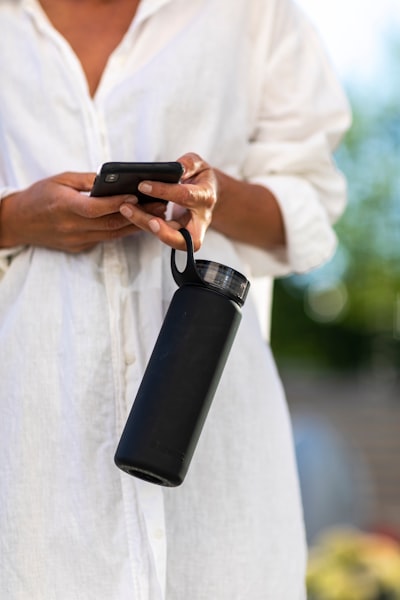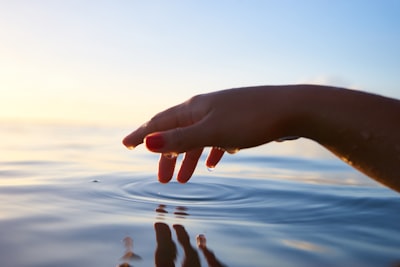Discover Secrets on How to Keep Drinking Water From Freezing This Winter Before the Big Chill!
Winter is here and with it comes the joy of outdoor adventures! But what happens when you reach out for your water bottle, only to find that it's frozen solid? Fear not, adventurer! We have got you covered. In this blog, we will help you understand the science behind water freezing and provide you with 10 tips on how to keep your drinking water from freezing while outdoors this winter. From leveraging the science behind IV drinks with greater freeze resistance levels, to using insulated bottles to carrying chemical warmers and even using a hot drink setup, we've got all the tricks up our sleeve. So, grab a hot cocoa and get ready to learn how you can stay hydrated on your winter adventures without any frozen surprises!
Understanding the Science of Water Freezing
When it comes to understanding why water freezes, there are several factors to consider. Air temperature plays a crucial role in the freezing point of water. The colder the air, the faster water will freeze. However, other conditions such as the presence of impurities or agitation can also affect the rate of freezing. It's important to know the science behind water freezing because it can help you prevent it from happening when you're outdoors. By understanding the freezing process, you can ensure that you always have access to drinking water, even on really cold days. So, whether you're camping or hiking, knowing how water freezes will quench your thirst and keep you prepared.
The Role of Outdoor Temperature
When you're out in the great outdoors during winter, the role of outdoor temperature becomes a crucial factor in keeping your drinking water from freezing. The colder the climate, the faster water freezes, and extremely low temperatures present a challenge. Understanding the impact of outdoor temperature is essential to prevent water from turning into ice. By monitoring the temperature and being aware of weather conditions, you can plan ahead and take necessary precautions. So, whether you're camping or hiking, having a warm water bucket or larger bucket with hot water, or even a cup of salt to melt the ice, can provide much-needed warmth and help quench your thirst. Don't let freezing temperatures dampen your adventures. Stay prepared and keep those bottles of water from freezing solid.
Preventing Water from Freezing While Hiking in Winter: An Overview
Winter hiking can be a thrilling adventure, but it's essential to keep your drinking water from freezing. The frigid temperatures can turn your refreshing drink into a solid ice block, leaving you thirsty and dehydrated. Lucky for you, there are various strategies you can implement to prevent this from happening. First and foremost, plan ahead and prepare for freezing temperatures. Make sure to carry hot water in insulated bottles or use chemical warmers to keep your water from freezing. It's also helpful to keep your water bottle close to your body for added warmth. Understanding the risks and challenges of winter hiking will ensure you stay hydrated and safe. So don't let the cold weather dampen your thirst-quenching experience – take preventive measures and enjoy your outdoor adventures!
Why is it Important to Keep Your Drinking Water from Freezing?
Ensuring that your drinking water doesn't freeze while outdoors is crucial for staying hydrated and safe. Hydration is essential for overall well-being, and dehydration can lead to fatigue, reduced performance, and health risks. By keeping your drinking water from freezing, you ensure continuous hydration and minimize the risk of limited water supply in cold weather.
Does Keeping Water Close to Your Body Help Prevent Freezing?
Keeping water close to your body can slow down the freezing process and help maintain its temperature. Utilizing an insulated sleeve or placing the bottle inside your clothing can effectively prevent freezing. This practical approach ensures your water remains drinkable in cold weather, making it crucial for hydration.
The Use of Insulated Bottles
Insulated bottles are like superheroes for your drinks, keeping them at the perfect temperature in any weather. These amazing inventions prevent heat exchange with the environment, reducing the risk of freezing. So, whether you're braving the icy wilderness or just out for a chilly adventure, using insulated bottles is a game-changer. With their incredible insulation powers, they retain warmth for longer periods, ensuring you have a steady supply of hot water to quench your thirst on those really cold days. Investing in insulated bottles is a must-have for outdoor enthusiasts who want to stay hydrated and enjoy their adventures without worrying about frozen water. So, grab your favorite insulated bottle and let the fun begin!
The Benefit of Carrying More Than One Source of Water
Carrying multiple sources of water is a clever move, providing a safety net in challenging outdoor situations. It ensures backup in case of freezing or spills, giving you peace of mind. When you're out in the wilderness, having extra water containers means you won't run out of hydration when you need it most. It's not just about quenching your thirst; it's about planning for contingencies. With multiple water sources, you can stay hydrated even on really cold days. And let's face it, camping in the UK can get pretty chilly! So, pack that larger bucket, bring those bottles of water, and don't forget the hot water bucket for a little extra warmth. In the wilderness, being prepared with more than one source of water is the key to staying hydrated and having a great time. Stay thirsty, my friends!
How Can Chemical Warmers Help?
Chemical warmers are a great way to prevent water from freezing while outdoors in winter. By generating heat, they help maintain the temperature of your water bottle. Compact and easy to use, chemical warmers provide an additional layer of protection against freezing and ensure you stay hydrated in cold weather.
Can You Use a Hot Drink to Prevent Water Freezing?
Using a hot drink as a preventive measure can temporarily delay the freezing of water. The raised temperature of the surrounding liquids helps prevent freezing in the short term. However, it requires careful planning and resources, and understanding its limitations is important.
How Effective is Protecting Your Water Bottle from Cold Temperatures?
Protecting your water bottle from cold temperatures is essential in preventing freezing. Insulating the bottle with materials like wool or insulation sleeves can be highly effective. Keeping the bottle inside a backpack or insulated bladder helps maintain its temperature. Avoiding direct exposure to cold air also reduces the risk of freezing. Taking these steps significantly increases the chances of keeping your water from freezing.
What are the Risks if Your Water Freezes Outdoors in Winter?
Frozen water poses several risks when outdoors in winter. It can lead to dehydration, lower body temperature, and increase the risk of hypothermia. Having unfrozen water is crucial for staying hydrated during outdoor activities. Additionally, frozen water can damage water bottles, making them unusable in emergencies.
Frequently Asked Questions
Can adding salt or other substances to the water prevent it from freezing?
Adding salt or other substances to the water can lower its freezing point, preventing it from freezing. However, this may affect the taste of the water. Insulating the container or keeping the water moving can also help prevent freezing.
How can you insulate a water container to prevent it from freezing?
To prevent a water container from freezing, there are a few methods you can use. Firstly, wrap the container in foam or insulation material to provide an extra layer of protection. Secondly, place the container in an insulated cooler or bag to maintain its temperature. Additionally, using hand warmers or heat packs can help keep the container warm. Lastly, keeping the water container close to your body will help maintain its temperature.
What temperature does water need to be in order to freeze, and can this be manipulated?
Water freezes at 32 degrees Fahrenheit (0 degrees Celsius). By adding substances like salt or sugar, the freezing point can be lowered. Insulating your water bottle helps prevent freezing in colder temperatures. It's important to check your water frequently to ensure it hasn't frozen.
Is there a specific type of water bottle or container that is better for preventing freezing?
Insulated water bottles and containers are more effective in preventing freezing. Double-wall vacuum insulated bottles are particularly efficient compared to single-walled ones. Stainless steel bottles are not only durable but also better at retaining temperature than plastic bottles. Additionally, look for water bottles with wider mouths, which allow for easier addition of warm liquids or insulation.
Can you use any kind of heat source to keep your drinking water from freezing (e.g., hand warmers)?
Using a heat source, such as hand warmers, to prevent drinking water from freezing is not recommended. Heat sources can contaminate the water or cause plastic bottles to melt. Instead, insulate your container with a cozy or keep it close to your body while outdoors.
Conclusion
So, there you have it! These are the top tips and tricks to keep your drinking water from freezing while enjoying the great outdoors this winter. Remember, understanding the science of water freezing is key to preventing it from happening. Keep your water close to your body by using insulated bottles or chemical warmers. And don't forget to carry more than one source of water to ensure you stay hydrated. While a hot drink may not prevent water from freezing completely, it can certainly help in keeping it from freezing quickly. So, go ahead and enjoy your winter adventures without worrying about frozen water. Stay safe, stay hydrated, and have a blast!
DISCLAIMER: THIS WEBSITE DOES NOT PROVIDE MEDICAL ADVICE
The information, including but not limited to, text, graphics, images and other material contained on this website are for informational purposes only. No material on this site is intended to be a substitute for professional medical advice, diagnosis or treatment. Always seek the advice of your physician or other qualified health care provider with any questions you may have regarding a medical condition or treatment and before undertaking a new health care regimen, and never disregard professional medical advice or delay in seeking it because of something you have read on this website.






